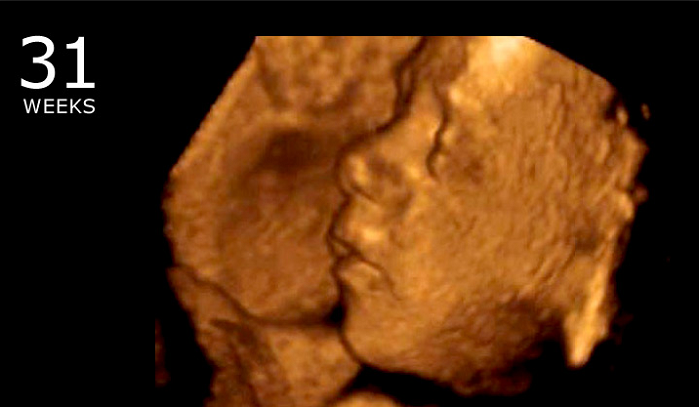Utah House lawmakers moved forward Tuesday with a bill to make sure the abortion industry provides accurate information to mothers about their unborn babies.
Sponsored by state Rep. Steve Christiansen, R-West Jordan, House Bill 34 would require abortion facilities to allow women to see their unborn baby on an ultrasound screen and hear the baby’s heartbeat when possible. It also would require abortion facilities to describe the unborn baby’s image. Abortion facilities that fail to do so could face fines of up to $250,000.
Deseret News reports the bill passed a House committee in a 6-5 vote, moving forward to the full state House for consideration.
“In the end, it is [a woman’s] decision. All we are asking is that she receive the information that is necessary so that she can make an informed decision. The risks are absolutely significant to the woman, physical and emotional,” Christiansen said.
Informed consent legislation is vital because women have said abortion facilities deceived them about their unborn babies’ development and refused to allow them to see their unborn babies via ultrasound.
Prior to the vote, Utah mother Caitlin Powell told lawmakers about her unplanned pregnancy at age 20 and the impact an ultrasound made on her decision to choose life, according to the report.
Here’s more:
When she went into an ultrasound, she found she was 10 weeks pregnant and saw a “little baby.”
“And in that moment, I stepped into my power. I was going to have this baby,” she said.
She agreed with Christiansen that “knowledge is power,” adding that “women deserve to feel powerful.”
Follow LifeNews.com on Instagram for pro-life pictures and videos.
Powell urged the legislators to “give women the full picture to see and understand the information through an ultrasound.”
Abortion activists and several Democrat lawmakers argued that the bill is not medically necessary and could traumatize women. However, abortion facilities acknowledge that ultrasounds are routine procedures prior to an abortion.
Christiansen’s bill simply would ensure women receive basic information about that ultrasound before they make a final decision about their unborn child’s life.
Previously, Merrilee Boyack, of Abortion-Free Utah, said more than 3,000 unborn babies are killed in abortions every year in Utah, or about eight babies a day, according to the Salt Lake Tribune.
“I think hiding the scientific reality of what they are experiencing and the development of the child, I think that is cruel,” Boyack said.
She said mothers “need clear information. They need to know that abortion has life-long consequences for them. They need to know that giving their babies life is the healthiest and best choice that they can make. … Babies, mothers, fathers will all be blessed by choosing life.”
Meanwhile, earlier this winter, Lauren Simpson, of the pro-abortion Alliance for a Better Utah, slammed the bill as “cruel” while undermining the fact that an unborn baby has a heartbeat, according to KUTV.
“Under Utah law, a woman already has the option to watch an ultrasound and listen to that cardiac rhythm if she chooses. Forcing that experience on someone while permitting her to ‘avert her eyes’ or request for the volume to be lowered or turned off is not a legitimate exception to this mandate,” Simpson said.
For years, the abortion industry has been working to stop informed consent legislation. Women have said abortion clinics refused to let them hear their baby’s heartbeat or see them on an ultrasound screen. This important information can help change women’s minds and encourage them to choose life for their unborn babies. It also cuts into the abortion industry’s bottom line.
A survey by the National Institute of Family and Life Advocates found that 78 percent of abortion-minded or abortion-vulnerable women chose life after seeing an ultrasound image of their unborn baby. Most women (83.5 percent) also said the ultrasound had a positive impact on their decision to choose life for their baby.








